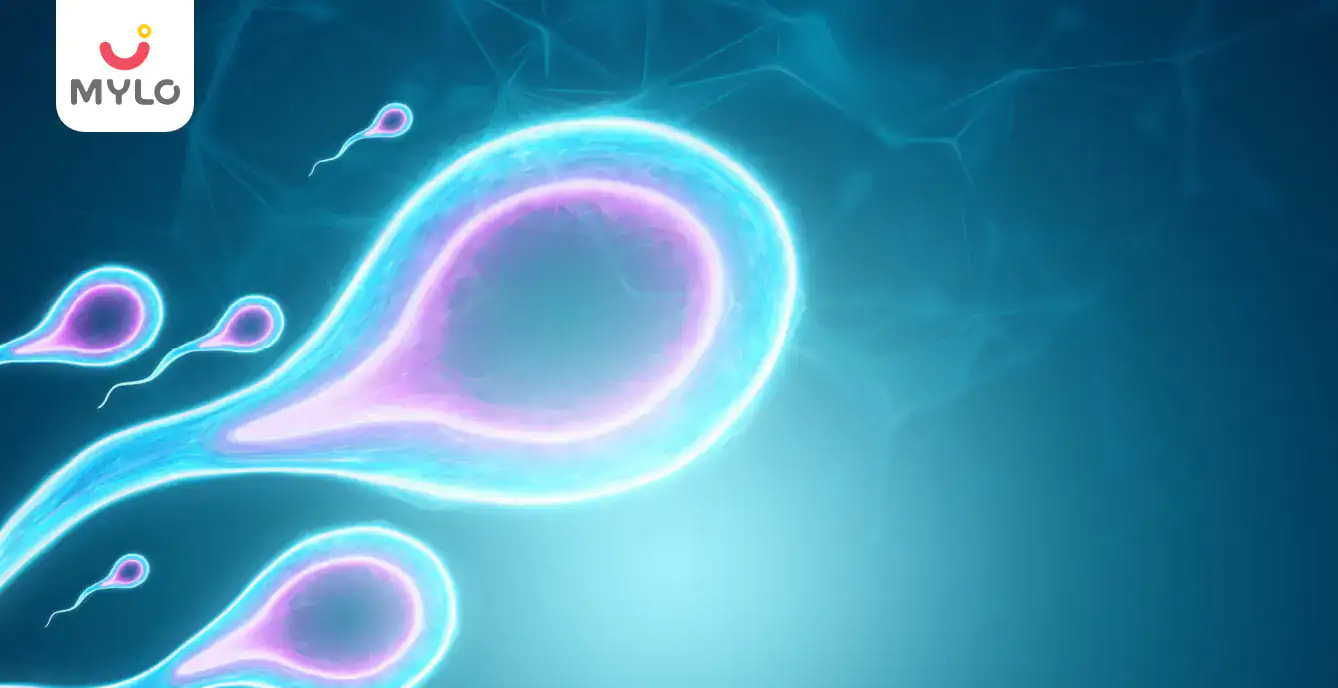- Home

- Male Infertility

- Are You Aware of These Common Male Infertility Problems? What Are the Signs, Symptoms & Causes of It?
In this Article
Male Infertility
Are You Aware of These Common Male Infertility Problems? What Are the Signs, Symptoms & Causes of It?
Updated on 3 April 2023



Medically Reviewed by
Kusum Sabharwal
Obstetrician & Gynecologist - MBBS| DGO
View Profile

Dealing with male infertility can be challenging for couples trying to conceive. Male infertility is a disease of the reproductive system where a man is unable to make his partner pregnant despite having frequent, unprotected sexual intercourse for more than 12 months. There can be numerous reasons why a couple is unable to conceive. To find out the main reason behind unsuccessful results of conception, the couple who wishes to embrace parenthood should ideally get themselves tested. Male infertility can be one of the main reasons behind it.
Signs and symptoms of male infertility
- Inability to make your female partner pregnant
- Problems with sexual function- Erectile dysfunction, hormonal imbalance, low sex drive, difficulty with ejaculation
- Abnormal breast growth (Gynecomastia)
- Discomfort, painful lump, or swelling in the testicle area
- Recurrent respiratory infections
- Decreased facial and body hair
- Hormonal abnormality
- Inability to smell
- Lower sperm count and poor sperm quality
You must consult a doctor if your partner’s age is above 35 and if you have ever undergone scrotum surgery or have a history of sexual, prostate, or testicle problems. A lot of problems can stop the cells from growing into healthy mature sperms.
Causes of male infertility
Medication
If the person is under medication to treat infections, depression, arthritis, cancer, high blood pressure, digestive problems, or anxiety issues, then these medications can badly impact the production, functions, and delivery of sperms.
Sperm disorders
Sperms may not grow fully or do not travel the right way. The person can also suffer from Oligospermia (made in low quantity) or Azoospermia (not made at all). Lifestyle choices like consumption of alcohol or smoking can cause various sperm disorders.
Varicoceles
When the veins in the scrotum get swollen, it hampers the quality of the sperm, and a person can experience sharp growing pain in his testicles. If the person is spending too much time standing or doing strenuous physical activity, then pain can vary from sharp to dull. This pain can only be relieved by lying down and taking a rest. If the situation worsens, then the only treatment is surgery.
Obstruction
The tubes through which sperms travel are blocked sometimes, and it can be due to repeated infections, swelling, or vasectomy (surgery). Any kind of blockage will not let the sperms leave the body.
Hormones
The pituitary glands produce some hormones that trigger the testicles to produce sperm. If there is misbalancing in the hormones, then it hinders the production of the sperm.
Immunologic infertility
This is one of the unusual causes of male infertility. Sometimes a male body makes antibodies that pounce their (own) sperm. Antibodies are made only when a person undergoes surgery, or experiences injury or infection, and it lowers fertility in males. It makes it hard for the sperm to swim and reach the egg through the fallopian tube.
Retrograde ejaculation
Retrograde ejaculation refers to inappropriate ejaculation of the semen by entering into the bladder instead of releasing it through the penis, which can cause cloudy urine after an orgasm. It occurs due to nerve damage caused by surgery, health problems, or medicines. Medication can help in resolving this problem to some extent.
Tumors
Non-malignant tumors and cancer can badly impact the male reproductive organs. To treat these tumors, doctors strongly recommend that the patient must undergo chemotherapy, radiation, or even surgery, which badly hinders the quality and quantity of sperm production.
You may like: Understanding how male fertility changes with Age
How to avoid male infertility?
Slight changes in eating habits, physical activities, and living a healthy lifestyle can help you get rid of male infertility. You can try to avoid male infertility by following these important points:
- Maintain a healthy body weight
- Avoid consumption of alcohol and discontinue smoking
- Avoid vasectomy
- Avoid getting exposed to toxins, chemicals, and other hazardous products
- Reduce mental stress
- Eat a balanced diet and practice meditation and yoga
- Stay away from illicit drugs
- Avoid extended exposure to hot areas
- Avoid sitting for long periods while wearing tight clothes and working on a laptop
Also read: Top 4 Kinds of Infertility Treatments to Cure Male Infertility





Medically Reviewed by
Kusum Sabharwal
Obstetrician & Gynecologist - MBBS| DGO
View Profile


Written by
Ravish Goyal
Official account of Mylo Editor
Read MoreGet baby's diet chart, and growth tips

Related Articles
Related Questions
If a male has normal FSH but having cromosome 9 inversion during kyotropy test and found spermatogenic arrest during biopsy is any solution to get pregnant and to recover this symptoms of male infertility... As his all other reports are normal about LH and FSH.. Plz reply solution vto get baby to us in this situation

Hello...my husband sperm count is low...dr has suggested clomiPhene citrate clofert max for 3 months.. In how many days will it take to increase his count...

RECENTLY PUBLISHED ARTICLES
our most recent articles

Breast Lump
Top 10 Tips to Prevent Breast Cancer
Insomnia
What causes Insomnia (lack of sleep) during early pregnancy?
What is the reason behind Depression amongst few Expected Mothers?

Exercise & Fitness
Effective Post Pregnancy Weight Loss Exercises to Get Back in Shape

Weight Loss
Dieting Postpartum: 7 Safe Ways to Lose Baby Weight After Pregnancy

Urinary Tract Infections (UTI)
Cranberry Juice For Urine Infection Myths & Tips
- Dengue During Pregnancy: Causes, Symptoms, Risks & Treatment
- Heat Rash in Babies: Symptoms, Risks & Treatments
- Amniocentesis: Meaning, Risks & Results
- Umbilical Cord: Risks, Benefits & Recovery
- Stretch Marks Removal: Tips & Remedies
- How Can Dads Calm A Fussy Toddler
- How to prepare your older child for a new baby
- 5 Financial Moves You Must Make Before Your Baby Arrives
- Daddy-Baby bonding from Pregnancy to Childbirth: Top 7 tips for you
- How to prepare your child for pre-school
- I am pregnant, can I still breastfeed my toddler?
- My toddler has bad breath. what should I do?
- When will my toddler learn how to scribble or draw?
- Can loud volume affect my toddler's ears?


AWARDS AND RECOGNITION
Mylo wins Forbes D2C Disruptor award
Mylo wins The Economic Times Promising Brands 2022
AS SEEN IN
















At Mylo, we help young parents raise happy and healthy families with our innovative new-age solutions:
- Mylo Care: Effective and science-backed personal care and wellness solutions for a joyful you.
- Mylo Baby: Science-backed, gentle and effective personal care & hygiene range for your little one.
- Mylo Community: Trusted and empathetic community of 10mn+ parents and experts.
Product Categories
baby carrier | baby soap | baby wipes | stretch marks cream | baby cream | baby shampoo | baby massage oil | baby hair oil | stretch marks oil | baby body wash | baby powder | baby lotion | diaper rash cream | newborn diapers | teether | baby kajal | baby diapers | cloth diapers |





